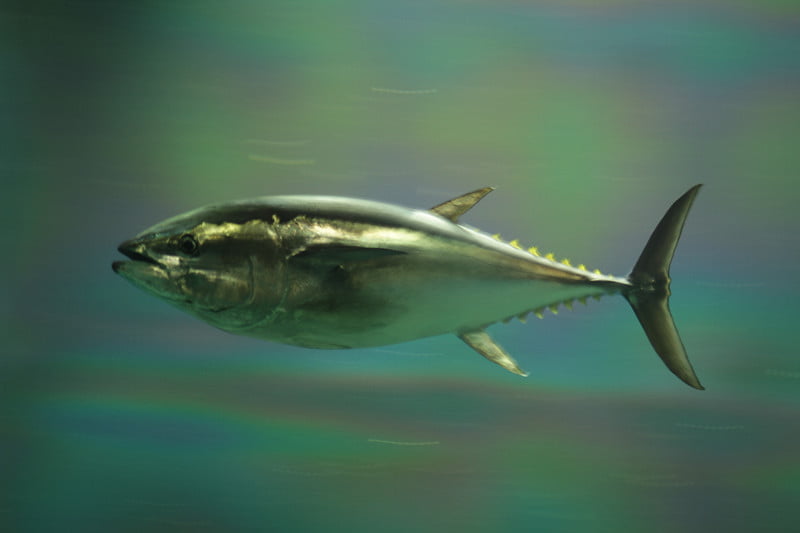The bluefin tuna, most often used in sushi rolls, is endangered due to overfishing and is facing a risk of extinction. An Israeli research team, in collaboration with other teams across Europe, believes it has found the key to the tuna’s survival: domesticated breeding in the Mediterranean.
Thunnus thynnus, or the bluefin tuna as it is commonly known, constitutes the most valuable fishery worldwide. According to a report by the European Commission, global catches are around four million tons per year – with a value of $6 billion.
Related Stories:
Overfishing, fueled by the sashimi-sushi market in Japan, Europe and the United States, has led to steep declines in their numbers. The devices used by fishermen to track and detect the fish further endanger it.
Saving the bluefin tuna
An Israeli research team joined the effort commissioned by the EU that included teams from countries including Greece, Italy, Spain and Germany. After ten years of research, it appears as though a breakthrough was made in Israel.
Dr. Hannah Rosenfeld, director of Israel’s National Center for Mariculture (NCM), a research center of the National Institute of Oceanography (NIO), has succeeded with her team in breeding the bluefin tuna in cages in the Mediterranean Sea.
Sign up for our free weekly newsletter
SubscribeEfforts to develop domesticated breeding of the Atlantic bluefin tuna are complicated by the tuna’s complex lifecycle. Incidentally, the species travels through Israel every year for about three weeks for its breeding season. During this season large numbers are captured and now scientists are managing to breed them. They have also grown the baby fish to full size, but unfortunately they have not yet succeeded in propagating the fish that are spawned in captivity.
Securing a future supply
The goal is to set up an international land-based institution in Israel for domesticated captive breeding of the Atlantic bluefin tuna. “If this goal is achieved, we will not be dependent any more on wild fish and we will be able to set in to motion the recovery of the global population of this endangered species that is at risk of extinction,” said Dr. Rosenfeld in an interview with Israeli newspaper Maariv.
She added: “We hope to make progress now and advance to the next stage of stepped up research, where we will be able to close the life cycle of the domesticated fish, setting up an international land-based institution in Israel for domesticated captive breeding of the Atlantic bluefin tuna. Once we achieve this goal, we will not be dependent any more on wild fish and we will be able to set in motion the recovery of the global population of this endangered species that is at risk of extinction.”
Photo by aes256
Related posts

Resilient And Nutritious New Plant-Based Milk Aims To Make A Splash

Chocolate From Cultivated Cocoa Comes Without Environmental Toll

Plastic Fantastic: Startup Takes PVC Back To Its Crude Oil Roots





Facebook comments